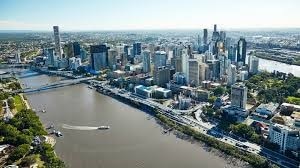|
Last week, Brisbane set a record in residential property with the sale of a Kangaroo Point mansion for a jaw-dropping $18.48m. Overall, the city registered a record number of transactions in homes above the million-dollar threshold last year.
Demand for Brisbane property is particularly strong among Chinese buyers. The city is now the third most searched state capital in Australia on the international Chinese-language property portal Juwai.com. Aside from China, demand for Brisbane homes stems from investors from the United States, New Zealand, and the United Kingdom, according to the Real Estate Institute of Queensland (REIQ). “We see the gap between Sydney and Melbourne closing in the next couple of years,” said Patrick Hunt, manager at Indigo Building Group. Hunt noted that interstate investors from the southern states had begun their “northern migration,” drawn in part by Brisbane’s more affordable median house price and stronger yields. For all its attractions, growing investor demand has alarmed the Queensland government, which has seen house prices reach unsustainable levels in Sydney and Melbourne. In June, the state government levied a 3% surcharge on foreign purchases, hoping to keep the market from overheating. Source: REIQ Your Investment Property
1 Comment
If you start using part or all of your main residence to produce income for the first time after 20 August 1996, a special rule affects the way you calculate your capital gain or capital loss.
In this case, you are taken to have acquired the dwelling at its market value at the time you first used it to produce income if all of the following apply:
If all of the above apply, you must work out your capital gain or capital loss using the market value of the dwelling at the time you first used it to produce income. You do not have a choice. A similar rule applies if you inherit a dwelling that was the deceased’s main residence and you use it to produce income. If you missed the previous three issues, please click here: Issue 1 , Issue 2, Issue 3 Source: Home first used to produce income The CEL Consulting Team has received the below important information from the 457 Programme Management Team from the Department of Immigration and Border Protection. Businesses approved as sponsors under the Temporary Work (Skilled) visa (subclass 457) programme administered by the Department of Immigration and Border Protection are required by law to meet the sponsorship obligations outlined in the Migration Act 1958. Some obligations apply beyond the term of sponsorship approval or after the sponsored person ends their employment with the sponsor. We highly recommend you to spend some time on and focus on page 4, the obligation timeframes. Not all sponsorship obligations cease when the sponsored subclass 457 visa holder stops working for the sponsor, the table in page 4 has outlined when each obligation applies. Please contact us on 1800 367 235 if you require any further information in relation to the Temporary Work (Skilled) Visa (subclass 457).
|
Archives
August 2020
Categories
All
|
62 Sanders Street UPPER MOUNT GRAVATT QLD 4122
|
Contact Us |




